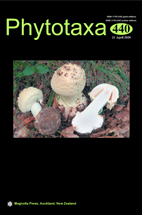Abstract
The Western Ghats of India support a significant amount of biodiversity despite heavy habitat loss. The northern part of this biodiversity hot-spot, along with Konkan, is considerably different from its southern and central counterparts on account of lesser precipitation and extended dry season. Though this region has been floristically surveyed well, there was a long need for a synthesis on local endemism of the flowering plants. Therefore, the present work was undertaken to produce an updated list of the local endemic plant species of the region with an analysis of habitat characteristics and their survival strategies. An extensive review of literature, herbarium records, and field studies yielded a checklist of 181 taxa including four monospecific genera which were examined for their distribution across their latitudinal spread and habitat specificity. A majority of the endemics are therophytes with their predominance, especially on rock outcrops. Northern Western Ghats seems to be the center of rapid diversification of certain herbaceous endemic genera like Ceropegia, Glyphochloa, Dipcadi, Eriocaulon and a few others. Despite being declared as a biodiversity hot-spot and having a higher concentration of endemic taxa, the region is underrepresented in global IUCN threat status assessments. The implication of effective conservation measures is necessary and the data presented in the manuscript can be used as a proxy for conservation planning.

